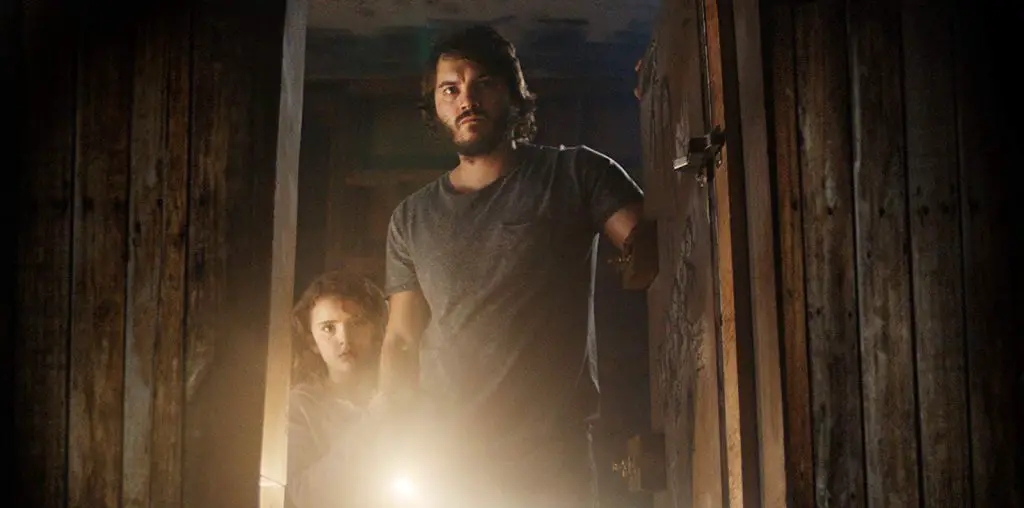
If you build it, they will come.
No, it’s not in the cornfields of Iowa, but at the NASCAR racetrack in Bristol, Tennessee. And the team’s only uniforms sport more than a few medical scrubs, as they play in the Remote Area Medical (RAM) league. Their coach, the lively Stan Brock, who bears a passing resemblance to the late actor Richard Harris, is the bicycle-riding founder of RAM, a non-profit organization created in 1985 as a volunteer, airborne relief corps to provide free health, dental, eye, and other humanitarian services to those in need.
This new documentary, “Remote Area Medical,” from the husband-wife directing team of Jeff Reichert and Farihah Zaman (2010’s “Gerrymandering”), captures but one of RAM’s programs, most of which use the same acronym. The Rural AMerica offshoot began servicing communities in the Appalachian Mountains, which contain some of the poorest counties in the United States. By the end of “Remote Area Medical” you will see that such logistically demanding undertakings demand an immense deal of support from its volunteers, doctors, dentists, ophthalmologists, optometrists, and their management staff. Armed with planeloads and truckloads of equipment, RAM creates stadium-size medical clinics on the fly, and that’s the gist of this film. A weekend-plus in the life of one such temporary facility.
Shooting in April 2012, the well-organized filmmakers follow a chronological structure as bedraggled, tired “attendees” begin to arrive Thursday in the racetrack’s parking lot for a chance to win the speedway’s lottery for free health care. If you snooze, you most definitely can lose one of the coveted spots. Meanwhile, RAM’s headquarters in Knoxville sends out its team of doctor-driven tractor trailers that will converge inside the track and set up various tented structures. Much of the help is from the other side of retirement, yet they still have skills for which the weekend’s patients will later give great thanks.
Reichert, Zaman, and their large group of embedded cinematographers branch off into various parts of the open air arena, and the filmmakers zoom in on several patients in their home settings in advance of and in follow up situations. Val, a part-time waitress with bad teeth offers “I don’t like dentists.” A lifelong smoker wants to have an x-ray because of a history of cancer in her family (yet she calmly lights up another Pall Mall for the camera). A 61-year-old’s last physical was as a teenager.
Other depressing stories (everyone willingly opens up to the cameras) are sprinkled throughout. Some of these people were recruited by the filmmakers through ads in the local paper, so that they could get cozy with the cameras. Many of these beat down folk gain more than new dentures, eyeglasses, hearing aids, or other wonders beyond their price range. RAM learned not to schedule their events against dental conferences, which forced one of its 2010 weekends to forgo dental assistance, and there is a great deal of demand for that this chilly weekend.
The cameras stroll through this small village. Dental chairs are lined up in long rows. Piles of bloody, pulled teeth clink in metal pans as the professionals do considerable and impressive patch work to restore forgotten smiles. Lots of emotions pass before the lens. New cases of self esteem follow many of the hundreds of procedures.
While it may not be an exceptional film, it is an exceptional story of an unique, ephemeral event, captured with an unfettered eye and not a single special effect. Kudos to editor Samuel Pollard for gathering this into a well-clipped presentation.
The origins of the film lie with Reichert’s aunt, a nurse, who caught a “60 Minutes” story on RAM, worked several Appalachian weekend events, and suggested her nephew get in on the action. The filmmakers volunteered one weekend in Pikeville, Kentucky, and realized this was a story worth telling. While this country’s health care crisis is alarming, the frustration of politics is kept out of the frame, for better or worse, and it’s up to the viewer to decide what he or she wants to do after viewing this informative undertaking.
The film was recently presented at AFI DOCS (and has had other festival screenings). The filmmakers, both of whom have a background in film distribution, are exploring options to get this out to more viewers, including one they call Remote Area Cinema (actually a variation of an old exhibition model dating back many decades), taking world-themed films to various communities.
